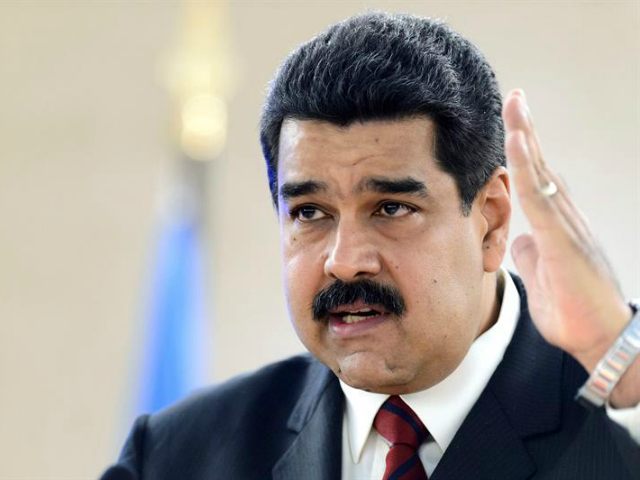Having lost the support of many civilian judges across the country, the government of Venezuelan dictator Nicolás Maduro is reportedly sending civilian protesters before military tribunals to face charges of “terrorism” and “inciting rebellion,” or sedition.
Trying civilians on civilian criminal charges in military courts is a direct violation of the Venezuelan constitution, the federal criminal code, and “human rights treaties signed by the Republic,” the Venezuelan newspaper El Nacional notes.
The NGO Foro Penal (Criminal Justice Forum), along with the opposition party coalition Democratic Unity Roundtable (MUD), allege that at least 75 people have faced a military tribunal for participating in peaceful protests against the socialist government, and another forty were scheduled to appear when the news broke Monday. NGO attorney Alfredo Romero is representing these civilians in court.
Romero told the Colombian newspaper El Tiempo that many of these individuals are facing charges of looting, not political activity. “Supposedly, these people are detained for having participated in looting, but the charges in their records have nothing to do with that,” he explained. “To give you a specific example, one person from whom the police confiscated four pieces of ham is facing charges of contempt and sedition. Now they claim he was insulting the guards. Most are charged this way.”
Among those facing a military trial are also the individuals believed responsible for toppling a statue of late dictator Hugo Chávez in Zulia state last week. Eighteen people were arrested for participating in that incident, though some argue that they had no hand in toppling the statue and were arrested for taking photos of it. One of these, a man identified as José Martínez, is being processed in a military tribunal under charges of “terrorism.” Two of the accused are minors, according to Venezuela’s NTN24.
The Argentine newspaper La Nación reported on Tuesday that the number of civilians in military custody for participating in protests had risen to nearly 300 by press time. El Tiempo puts that statistic at 51 people over the weekend, citing a Venezuelan government official.
Venezuela’s minister of defense, Vladimir Padrino López, reportedly confirmed the use of military tribunals for civilians on Tuesday. “When there is an aggression against a guard or a member of the Bolivarian National Armed Forces (FANB), or property of the FANB, military charges and military jurisdiction perfectly applies,” NTN24 quotes Padrino as saying.
That argument appears to have convinced few international observers. The head of Foro Penal, Gonzalo Himiob, accused the Venezuelan socialist government of attempting to “construct a false narrative in which there exists in Venezuela an armed rebellion.” The opposition is not known to possess any weapons, given the ban on civilian possession of firearms in the country.
“Venezuela’s part military, part civilian regime represents the very worst of a dictatorship,” the head of the Organization of American States (OAS), Luis Almagro, said in response to the news. “Having military judges charge civilians is utterly out of proportion, legally speaking… a state of rights does not exist even in appearance.”
The use of military tribunals appears to be part of something Maduro has called the “Zamora Plan,” a military initiative of which few details exist publicly. The initiative appears to target the opposition and any dissenters within the military’s ranks but also includes mass detentions of civilians.
BBC World cites the Minister of Justice and the Interior, Néstor Reverol, stating last week that the plan was necessary to subdue “the terrorist right wing.”
“The terrorist right wing has instigated rebellion, which is a military crime, just has it has committed crimes against guards and destroyed the property of the FANB,” he said, echoing Defense Minister Padrino.
A new wave of daily protests erupted in Venezuela in March following an attempt by the Supreme Court to strip the National Assembly of its power, installing itself as the federal legislative body instead.
While that attempt failed, protests continued in response to the flagrant violation of the nation’s constitution. Among the tactics to subdue protests the government has adopted are the use of various weapons against protesters: tear gas, rubber bullets, and armored tanks in particular. Leaders of the opposition have argued that soldiers are increasingly disenchanted that they have been forced to turn their weapons against civilians and are deserting en masse.

COMMENTS
Please let us know if you're having issues with commenting.